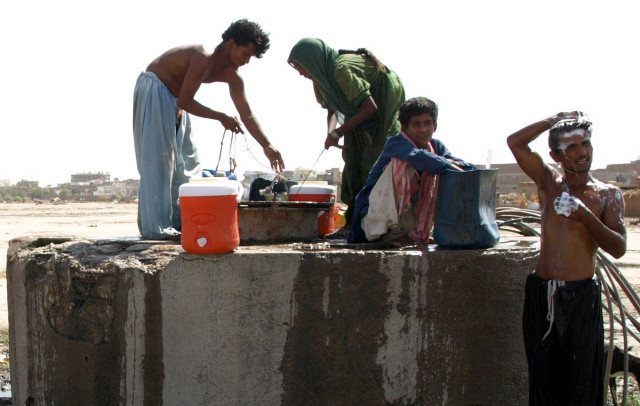Survey helps boost WASA revenue by Rs9.5 million
For fee, consumers abusing residential water connections for commercial purposes offered regularisation of connections

For fee, consumers abusing residential water connections for commercial purposes offered regularisation of connections. PHOTO: FILE.
Following a recent survey in Rawalpindi, WASA had added 1,100 new commercial consumers and 4,450 new residential users in its database.
An official of the agency said that these new consumers were billed for the months of January and February in March since the utility sends bills to every two months. He added that till March 20, WASA had collected a total of Rs31.7 million.
By comparison, the agency had collected only Rs22.2 million in the first 20 days of January for the billing period of November and December last year, he added.
The additional revenue was collected after the survey spotted that over 5, 000 new consumers, including a number of residential connections, were being used for commercial purposes.
The official said that the agency had issued bills to consumers, who were found to be using their connections illegally for commercial purposes, and asked them to deposit security for regularising their connections in advance.
He added that security deposit for every new domestic user had been set at Rs3,500 while those for commercial users had been set at Rs6,000.
At a minimum, WASA bills users living in a five marla house Rs98 every month as water charges.
The official said that last year WASA collected revenue of Rs275 million. He added that before the survey, the agency had records of 130,000 consumers.
With these figures updated, he hoped that this year the revenue would surpass Rs300 million.
When contacted, WASA spokesperson Umer Farooq said that every new user detected in the survey would have to pay water use charges for the past year.
Asked why the agency was charging consumers for an entire year, Farooq explained that WASA had decided to adopt the measure since they did not know for how long a particular user been using water illegally.
He, however, added that if a consumer wanted, the agency could allow them to pay their dues for this period in instalments.
Published in The Express Tribune, April 4th, 2017.



1724319076-0/Untitled-design-(5)1724319076-0-208x130.webp)















COMMENTS
Comments are moderated and generally will be posted if they are on-topic and not abusive.
For more information, please see our Comments FAQ